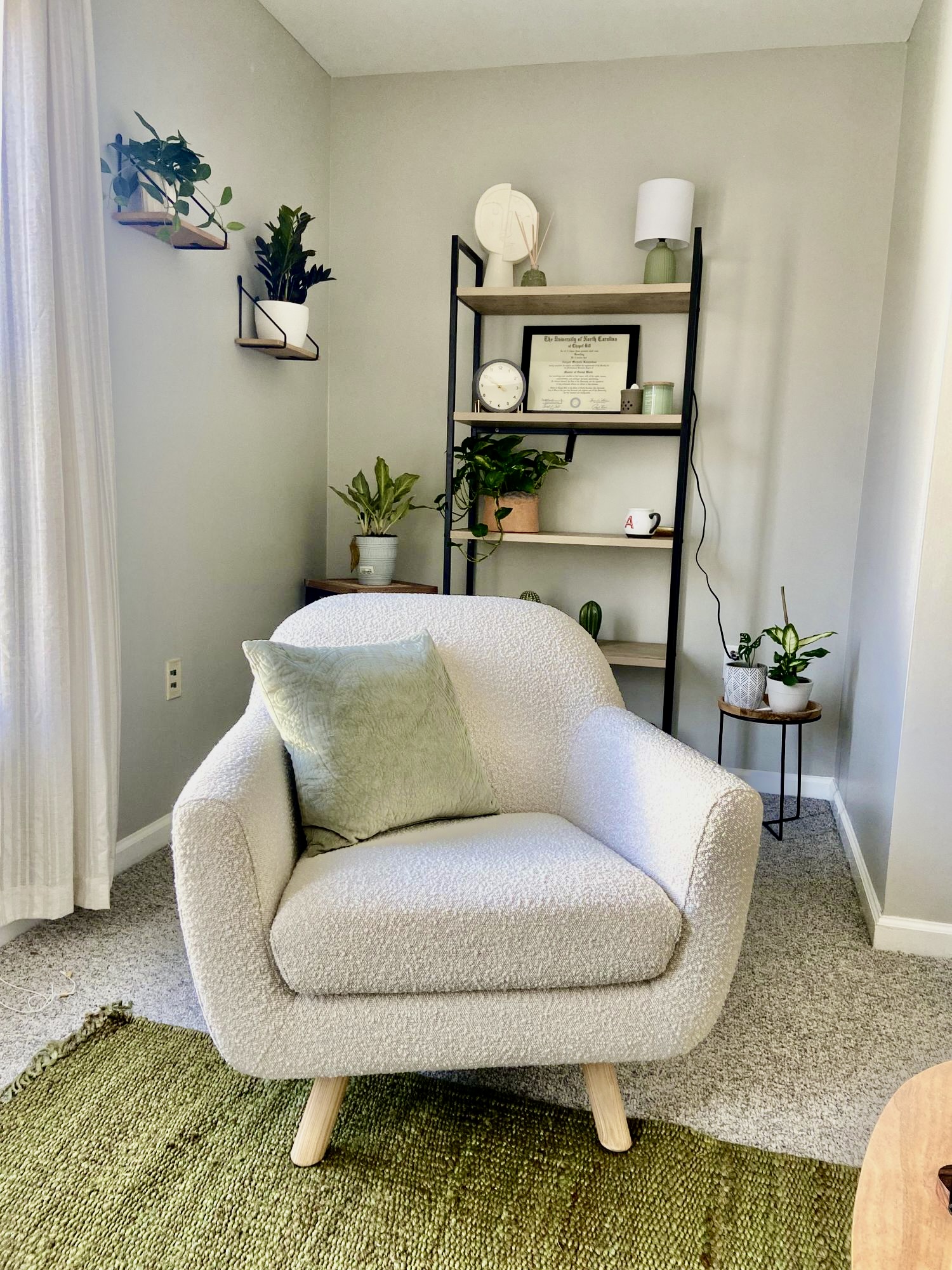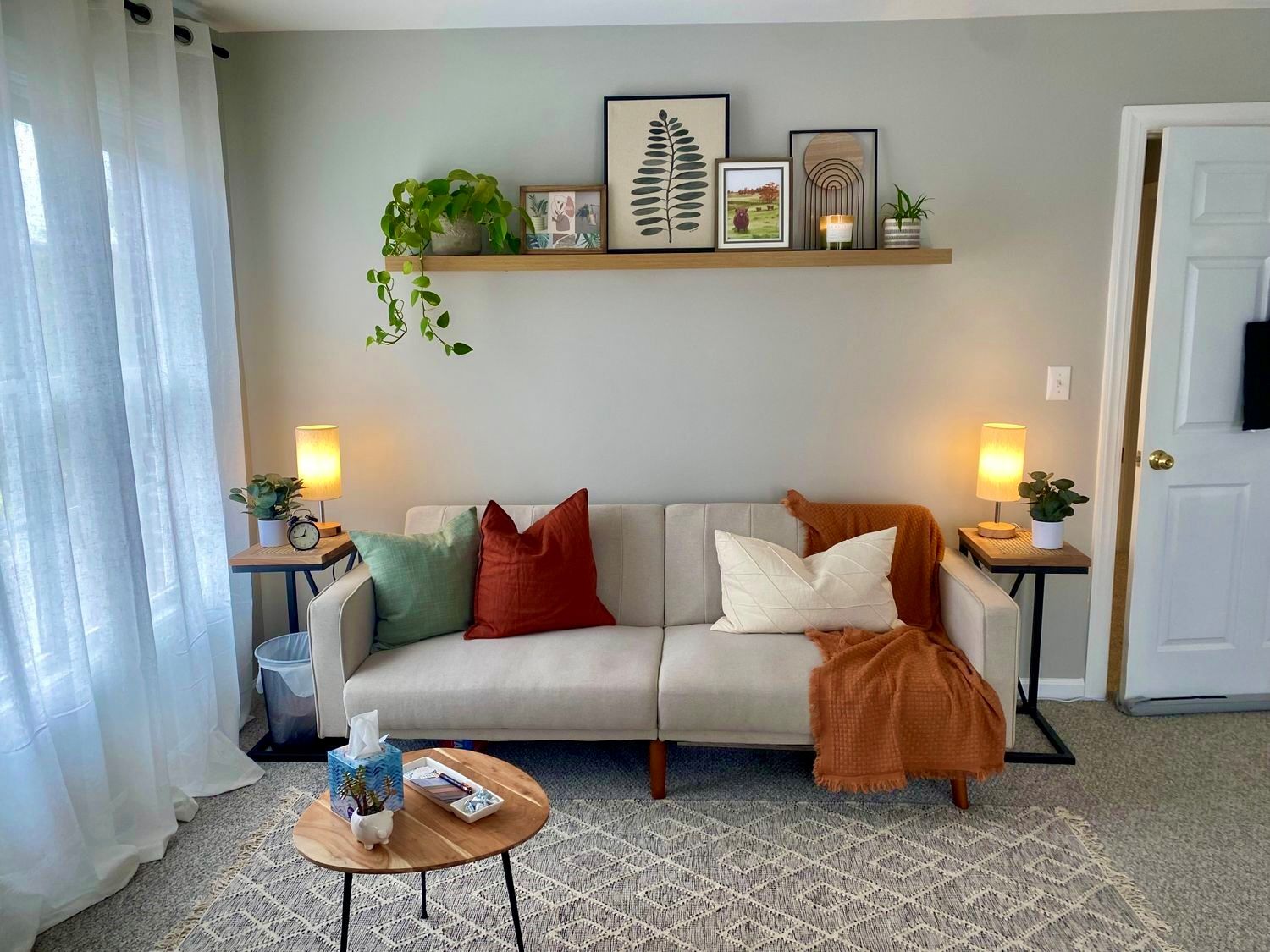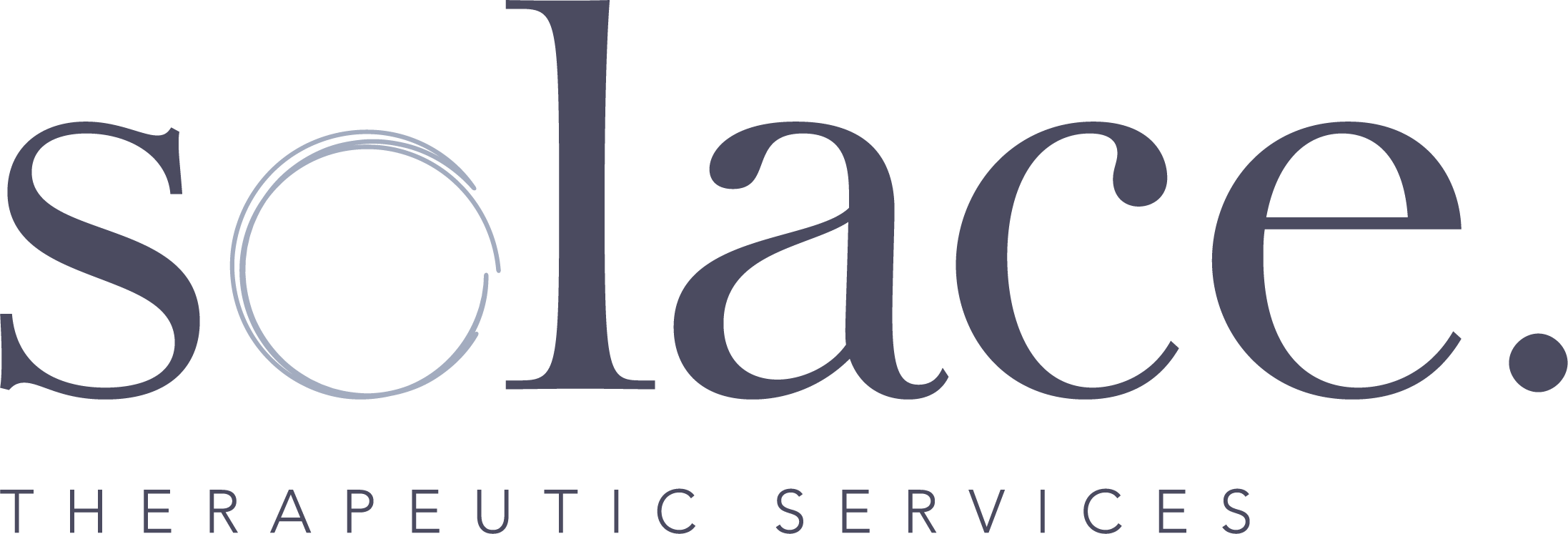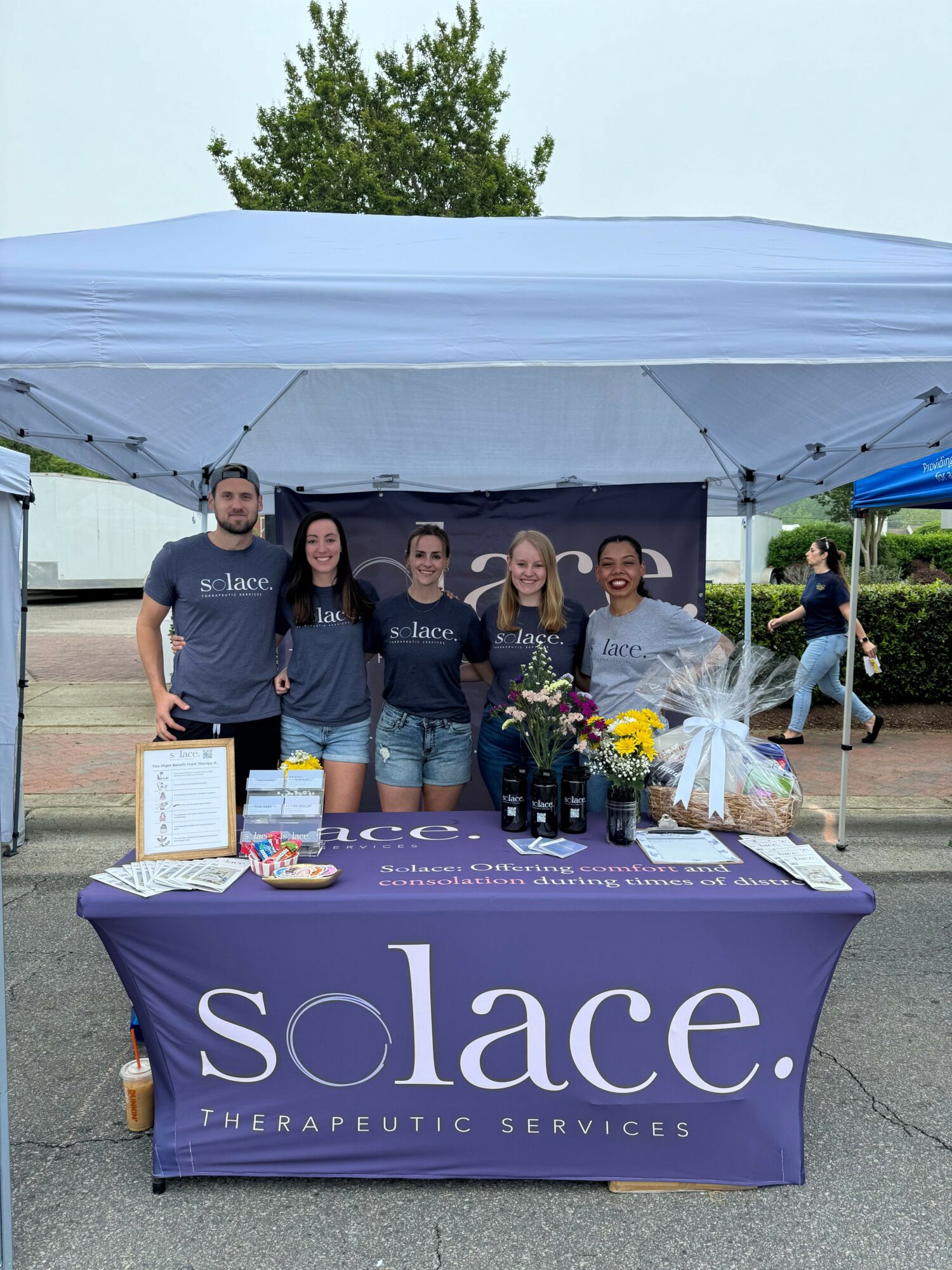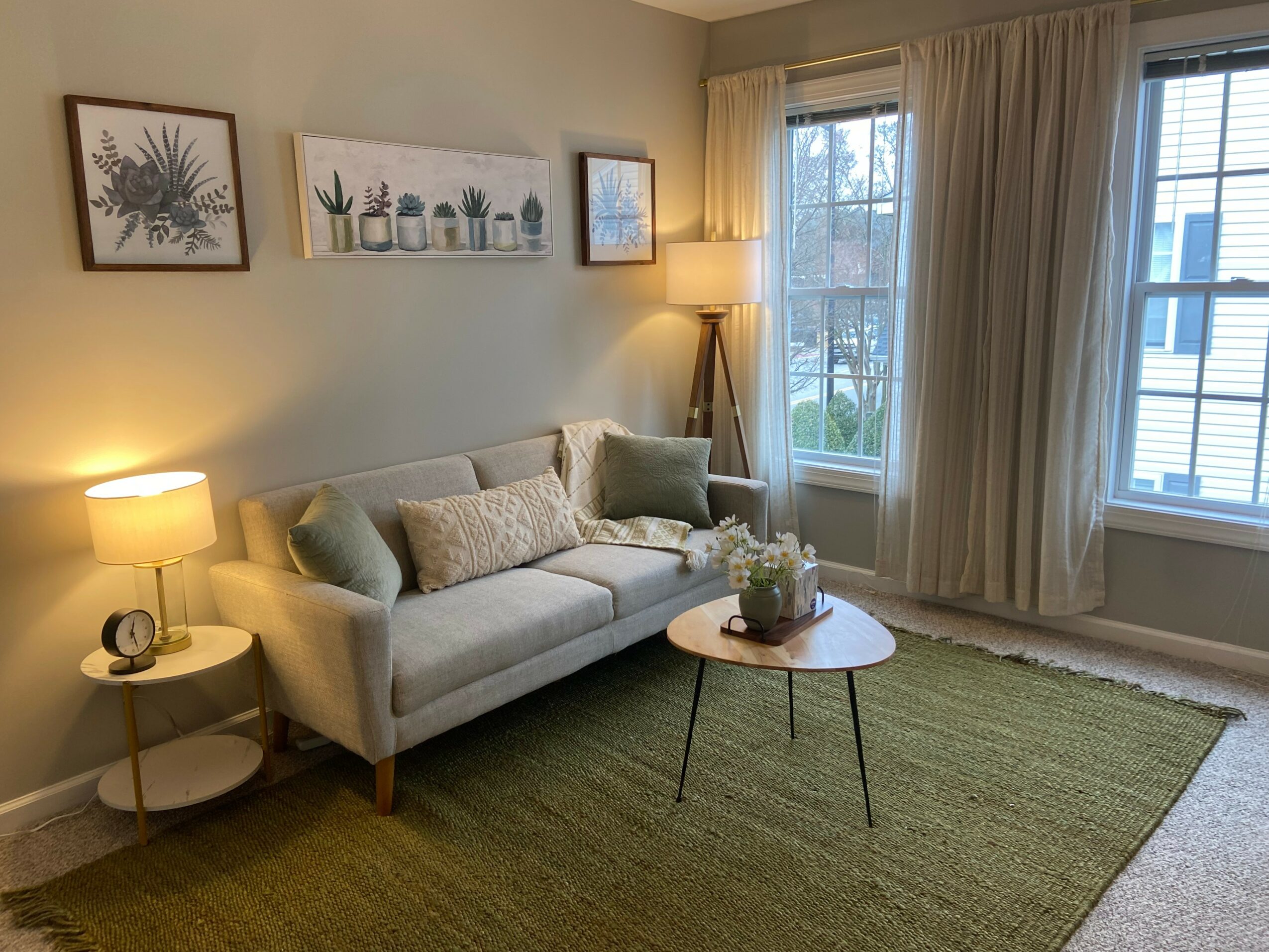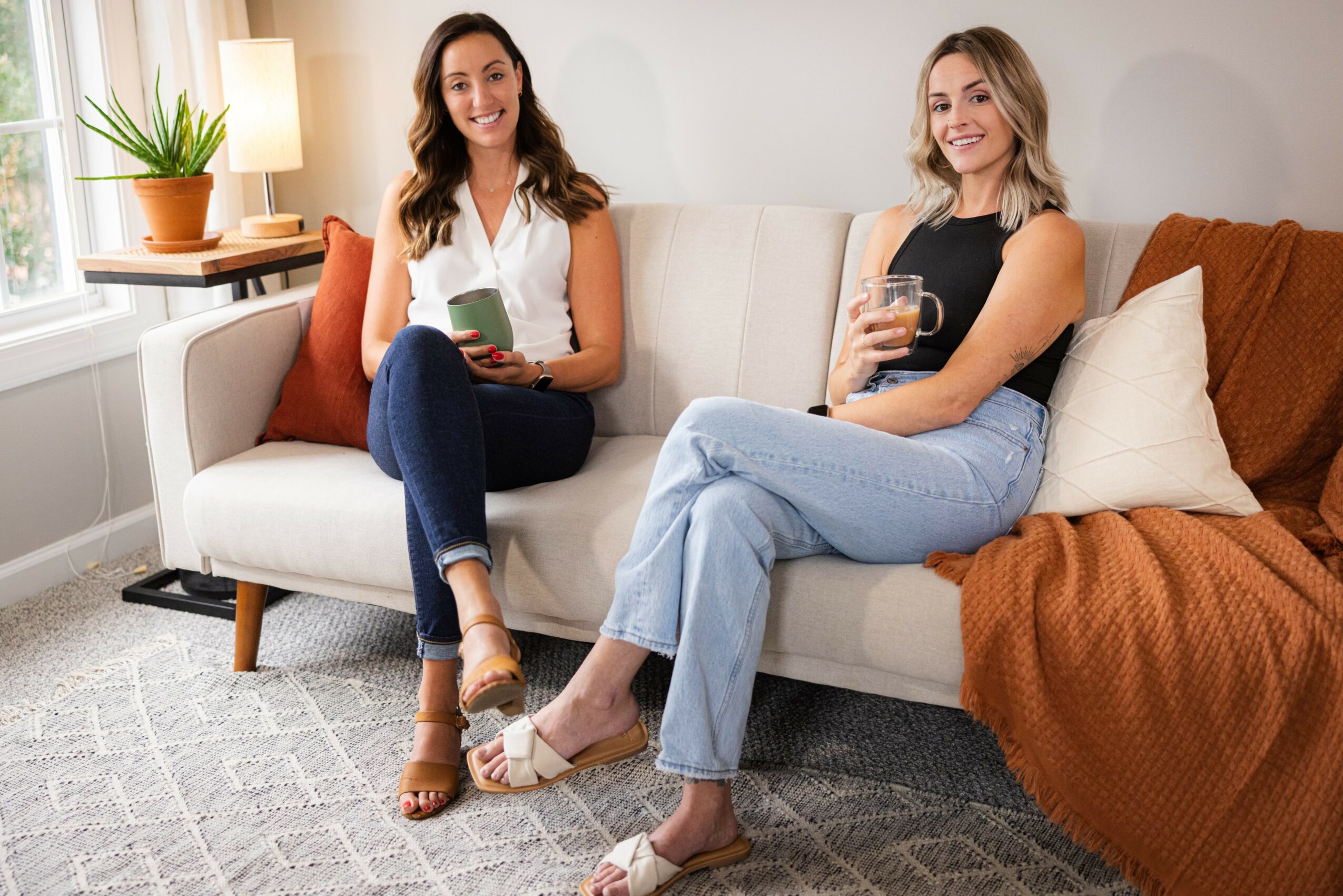

Today we’d like to introduce you to Abigail Kalainikas And Morgan Lavender.
Hi Abigail Kalainikas and Morgan Lavender, we’re thrilled to have a chance to learn your story today. So, before we get into specifics, maybe you can briefly walk us through how you got to where you are today?
Honestly, Solace started because we were both just tired. Tired of the way therapy often felt so rushed, and not really built for real people with complex lives.
We (Morgan and Abby) met in 2018 while working as outpatient therapists at a clinic in Cary. We instantly connected over our shared experiences with ADHD and anxiety. As we continued working in the field, we began to question whether there was a more effective and compassionate way to provide client-centered care within the community. We started to wonder “what if therapy wasn’t just this thing people endured once a week, but something that actually felt calming, grounding, maybe even empowering?” And then, at some point, we realized that we could build that ourselves. So we did.
Though initially trained in modalities including CBT, DBT, and motivational interviewing, we both realized that something was missing when providing care to individuals, particularly those with a trauma history. This brought us to somatic based approaches. Which helped to create the foundation and vision on which Solace Therapeutic Services came to life: a space where you can bring your whole self and can be met with compassion and care.
Would you say it’s been a smooth road, and if not what are some of the biggest challenges you’ve faced along the way?
Starting a business of any kind is rarely a smooth road, and starting a therapy practice is no exception.
I don’t think either of us realized what a crash course we were signing up for. Running a business, hiring people, setting boundaries, trusting ourselves—it was a lot. Especially when you’re also trying to hold space for clients all day and manage your own ADHD brain at the same time. It’s been a process of learning how to adapt, fight imposter syndrome, compromise, communicate, and balance work and personal life.
The other thing no one really talks about is how hard it is to grow a practice ethically. We’re very intentional about not burning ourselves or our team out, not over-pathologizing people, staying grounded in trauma-informed and neurodivergent-affirming values, but that takes a lot of unlearning and constant self-reflection. We’re proud of that work, but it hasn’t always been easy.
There were definitely moments where we would look at each other and say, “Are we actually doing this? Are we qualified to do this?” It’s wild how imposter syndrome doesn’t go away just because you open a practice—it just gets louder. But at the end of the day we had each other and were able to lean on each other for support, encouragement, and reassurance. Having someone you trust is critical to building a strong and effective business.
We’ve been impressed with Solace Therapeutic Services, but for folks who might not be as familiar, what can you share with them about what you do and what sets you apart from others?
At Solace, we prioritize meeting people where they are. It’s a central component to being an effective therapist and we want our clients to feel that all throughout the practice. We’ve received feedback that our space feels different. It’s calmer. It feels more real. As though it’s a place where they can finally exhale. We take that as the biggest compliment. Therapy should feel like a soft landing, not another performance.
Our mission is not to deliver cookie-cutter therapy, and instead provide individualized care depending on the unique needs of each person. We work with people who are burnt out, anxious, masking, or just feeling like they’ve been stuck in the same loop for years. And instead of trying to “fix” them, we help them understand why those patterns are there—and then gently help shift them.
Our practice as a whole specializes in trauma and integrates a whole body approach. We do significant work around attachment, childhood trauma, nervous system dysregulation, and how early experiences shape our relationships and self-worth as adults. We are intentional about bringing in somatic and body-based tools, because we know that healing isn’t just a cognitive thing—it lives in the body too.
And of course our team—we’re so proud of them. Every therapist here is thoughtful, nerdy about mental health in the best way, and really cares about showing up for clients as whole people, not robots. We talk a lot about showing up in the clinical space with authenticity and care. You can rest assured that all of the therapists at Solace are client centered, and genuine in their approach to therapy.
What were you like growing up?
Abby:
When I was young I was definitely an independent free spirit. I loved to dress up, play make believe, and find new fun crafts to complete. As a free spirited kid, I could also be a challenge. I had a mind of my own, was never one to back down from a challenge, was *very* concerned if things weren’t fair, and cared passionately about the people around me. I describe myself as someone who feels deeply. I love hard and I care deep. Which means when I was young I would be the first to step in if someone needed help and the first who would stand up for someone if something wasn’t fair– sometimes in a way that resulted in my getting in trouble. I was the person often kicked out of class for getting upset with a teacher if I felt that what they were doing wasn’t fair or kind to someone else. Over time, I learned that there are effective ways to use my inner passion. I learned that there are ways to use my voice to assist those in need. By the time I was in high school I was more involved with girl scouts, local volunteering opportunities, and community drives for those in need.
Morgan:
was one of those kids who was always outside—running around, making friends with everyone, and talking to pretty much anyone who’d listen. I was super social and always had this pull toward helping people, even though I didn’t know exactly what that would look like. It wasn’t until college when I took my first psychology class that it all clicked. I fell in love with it, and from there, I knew this was the path I wanted to be on. Looking back, it makes total sense that I ended up doing the work I do now—supporting people in feeling safe in themselves and in their relationships has always been at the heart of who I am… just with fewer skinned knees and more coffee.
Pricing:
- 60 minute intake session $170
- 60 minute therapy session $170
- 45 minute therapy session $150
- Sliding scale spots available dependent on need
- Reduced fee and pro bono intern pricing available
Contact Info:
- Website: https://solacetherapync.com/
- Instagram: https://www.instagram.com/solacetherapync/
- Facebook: https://www.facebook.com/profile.php?id=100088958455649
- LinkedIn: https://www.linkedin.com/company/96963748/admin/dashboard/
